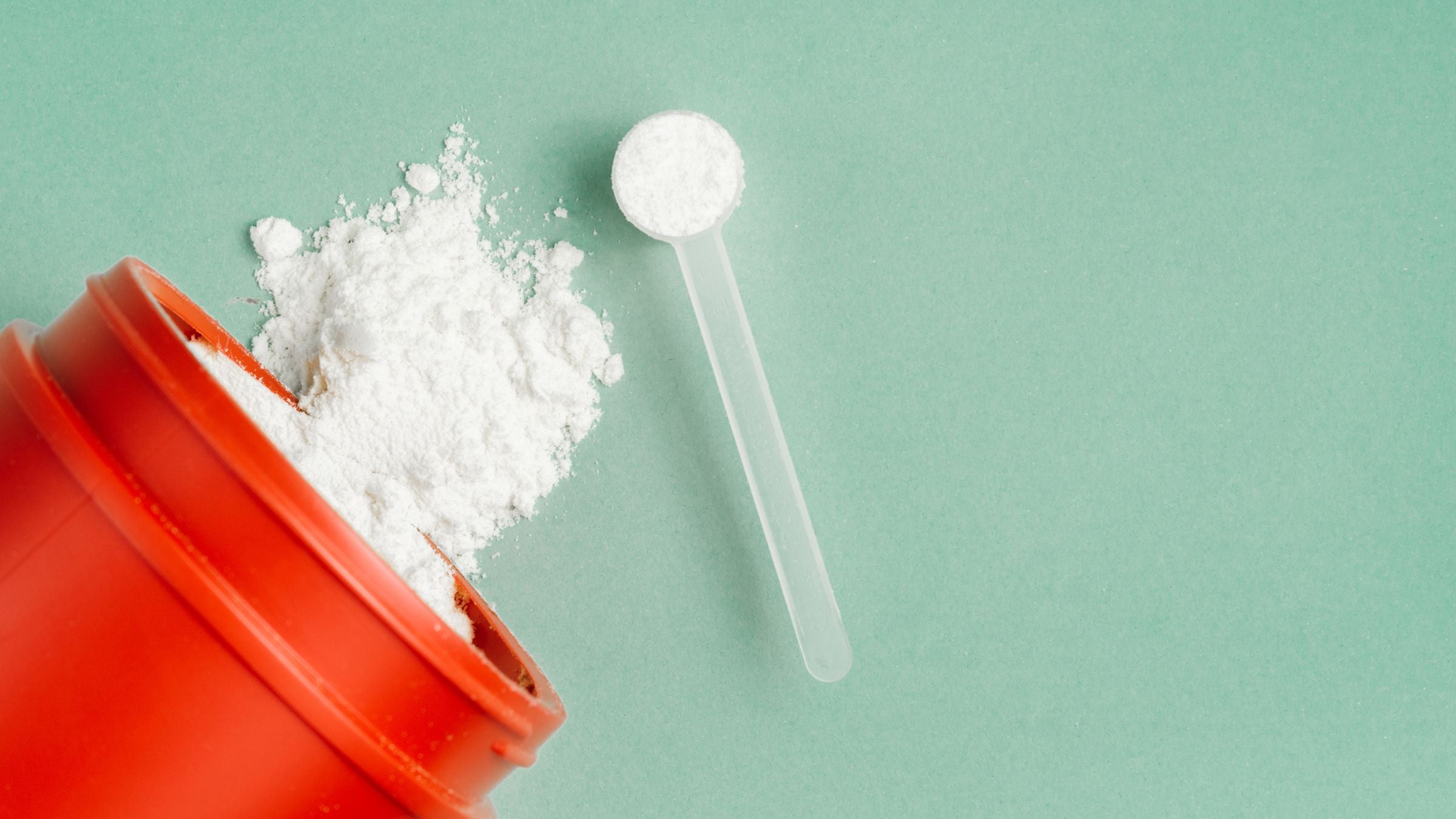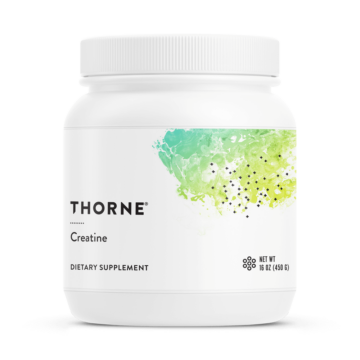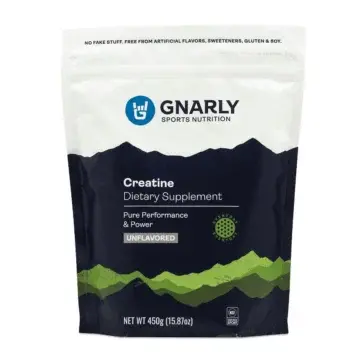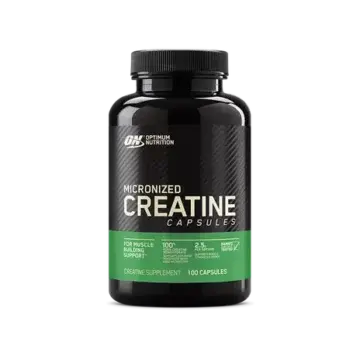Should Triathletes Take Creatine Supplements?

(Photo: Getty Images)
Is it just me, or does it seem like every fitness expert on every podcast and social media feed is waxing poetic about creatine? Based on the hype, we are being led to believe that creatine is a no-brainer when it comes to supplements. All you have to do is take a bit of white powder each day and…boom…you’ll turn into a hero athlete.
Creatine is so popular these days, the first U.S. creatine production facility recently opened in Plattsmouth, Nebraska to meet the ever-increasing demand. Currently, the majority of creatine products available on the market come from China. Higher demand, paired with supply issues, has caused the price of creatine supplements to spike in the last couple of years.
All of this hoopla may have you wondering if the stuff is a must-have for triathletes. Let us start with a humble request: please don’t believe everything you read on Reddit. Some skepticism is always warranted, and it’s good to have questions about creatine.
But should triathletes take creatine? Let’s review the latest research on the topic to help you figure out if it’s the right supplement for you.
RELATED: Ask Stacy: Are Supplements Necessary for Endurance Athletes?
What exactly is creatine, anyway?
Creatine is a substance that your body makes from three amino acids called L-arginine, glycine, and L-methionine. It’s primarily made in the liver, and to a lesser extent, in your kidneys and pancreas. Most humans will make about 1 gram of creatine per day. You also get creatine when you eat animal-based foods: meat, poultry or seafood. (Sorry, plant-based folks: you can’t get it from tofu.) Creatine is stored primarily in skeletal muscles, with small amounts stored in the liver, kidneys and brain.
What is the function of creatine?
In our bodies, creatine stores phosphate groups in the form of phosphocreatine (creatine exists in cells in this form). These phosphate groups are donated to adenosine diphosphate (ADP) to regenerate adenosine triphosphate (ATP), the primary energy carrier in the body. For instance, the energy from ATP is required for muscular contraction during exercise. Your muscles remove phosphate from ATP to form ADP to supply energy. As ADP offers no energy for muscle cells, your body once again uses creatine to supply a phosphate molecule to convert ADP back to ATP. Still with us? So as your muscles use up ATP it needs phosphocreatine to make more and if it does not get the necessary phosphocreatine then energy demands for muscular contraction can’t be met.
This role in energy production is particularly relevant under anaerobic conditions, when energy demand is high and oxygen supply to convert carbs and fat into energy is insufficient (such as intense physical activity including all-out sprint efforts).
RELATED: Mitochondria Can Help Researchers Crack the Training (and Aging) Code
How does creatine work to boost performance?
If you increase the cellular supply of phosphocreatine through supplementation, you should have more phosphate to convert ADP to ATP and thus have more energy available to workout harder via improved strength and power output. To rephrase, you will have greater energy availability through increased ATP turnover during exercise and, in turn, less muscular fatigue. Indeed, creatine is well-researched for this purpose. Over the past few decades, a raft of research papers has shown it can help users achieve better gains in muscle mass and athletic performance, especially during activities involving short bouts of high-intensity activities such as weight lifting, HIIT workouts, or sprinting. The ability to perform one more set at a heavy weight or a few more sprints at a higher wattage output can, over time, lead to greater gains in strength, muscle mass, or speed. Essentially, if you continue pushing harder and harder during your workouts, creatine could keep powering you to greater gains.
An investigation in the Journal of the International Society of Sports Nutrition determined that creatine supplementation (along with electrolytes) improved anaerobic sprint cycling performance (15 second max effort sprints followed by 2 minute recovery periods) in recreational male athletes. Creatine use may also help athletes increase their sprint performance during the final suffering moments of a cycling time trial. This study in the journal Nutrients found that creatine supplementation (20 grams for six days followed by 2 grams daily) helped athletes increase their one-repetition maximum capacity in the gym and also reduce signs of post-training muscle damage. There is also some evidence to suggest that creatine use before a big physical effort, like a half Ironman, can also reduce the amount of exercise-induced muscle damage typically associated with intense endurance sports, which could allow for a quicker recovery.
For menopausal women, creatine supplementation in combination with resistance training has been shown to counterbalance the muscle, bone and strength loss that can occur during this time and can impact athletic performance and health status.
Interestingly, a report in Medicine and Science in Sports and Exercise discovered that creatine supplementation in combination with adequate carb consumption may have the ability to increase muscle glycogen stores, which is presumed to be due to a creatine-induced cell volume increase, allowing for more room for glycogen to stored. This, in theory, could help an athlete keep up the pace for longer, as glycogen is a hugely important fuel source for working muscles. This certainly merits further investigation.
RELATED: Studies Are (Again) Showing How Badly Athletes Need Carbs
Since creatine is known to increase intramuscular fluid retention there is the possibility for an improved thermoregulatory response during exercise in hot conditions. A potential benefit that still needs more research dollars to investigate. But water retention might not be a lasting effect of creatine supplementation thereby negating any heat tolerance advantage long-term.
After analyzing the research on creatine, the International Society of Sports Nutrition (ISSN) declared that “creatine monohydrate is the most effective ergogenic nutritional supplement currently available to athletes with the intent of increasing high-intensity exercise capacity and lean body mass during training.”
So should triathletes take creatine supplements?
While there is a lot to celebrate about creatine when it comes to fitness gains, there are a few key points to keep in mind. Creatine supplementation will only help you to become a fitter athlete if you pair it with the forms of exercise where it helps: namely, high-intensity efforts including heavy weight training and sprint intervals that require more energy to be generated during anaerobic conditions and typically result in greater degrees of muscle damage. So if your training program includes some exhaustive intervals and explosive resistance training sessions, it’s a worthy supplement to consider. On the flip side, there is little evidence that creatine will do much to improve performance during lower-intensity endurance efforts, such as your zone 2 training. In other words, if all you do is moderately-paced endurance activities, you could give creatine a pass without being at a disadvantage.
Women have naturally lower creatine stores than men, meaning that they may respond better to creatine supplementation and could experience greater performance improvement than males.
It’s also possible that lesser-trained athletes will benefit more from creatine use than highly-trained individuals. That’s because in the latter group, gains in fitness are more slight and thus they may receive less of a boost from the use of any supplement, including creatine. As always with nutrition and supplements, we should expect some individual variability.
Always remember that the benefits of supplements like creatine will be marginal compared to what you experience by nailing down your nutrition, training and sleep habits. In the end, creatine alone will not make you a podium finisher on its own. So let us just say that no amount of creatine will turn a donkey into a Kentucky Derby contender.
RELATED: Triathlete’s Complete Guide to Nutrition and Fueling
How much creatine should triathletes take, and when?
Nearly every study that has addressed creatine and physical performance has used levels of creatine achieved through supplementation. It’s not practical to consume enough creatine from food to produce a noticeable ergogenic benefit. And the amount we make naturally – about 1 gram daily – isn’t sufficient to give you an extra power boost.
Creatine can be supplemented through a loading protocol, where someone consumes 0.3 grams per kilogram of bodyweight per day for 5–7 days, then follows this up with at least 0.03 g/kg/day indefinitely. This can be helpful if you need to quickly maximize the benefits of creatine supplementation. Increasingly, though, people are forgoing the loading protocol and just starting with 3 to 5 grams a day and keeping up this intake level. This seems to work fine as the best available evidence suggests taking this amount of creatine monohydrate daily will help maintain levels of creatine that can safely have an ergogenic effect.
Higher doses (up to 10 g/day) may be beneficial for people with a high amount of muscle mass and/or very high activity levels, or for those who have determined they are non-responders to the lower 5 g/day dose. There is little evidence that consuming much more than 10 g/day will deliver any greater performance or health benefits.
There remains some question as to whether taking creatine before or after a workout is best, with this study finding that consuming the supplement soon after a workout is best for bolstering strength and lean body mass. But, generally, you can just take it at a time that works best for you. It might be best to think of creatine as neither a post nor pre-workout supplement since the ultimate aim is to saturate your body’s creatine stores, so as long as you take it regularly you will reap the rewards.
Creatine is a tasteless powder that can be easily mixed into liquids including water, juice and smoothies.
RELATED: When to Take Your Vitamins and Supplements
Is creatine safe to take every day?
The big question, and one that a lot of people ask when they start taking creatine, is: “is creatine safe?”
You should know creatine is one of the most studied sports nutrition supplements ever, and, in doing so, has been proven very safe to use when taken in reasonable amounts. Studies performed to look at the long-term effects of taking creatine have shown minimal negative side effects and The International Society of Sports Nutrition says intake levels of up to 30 grams a day possess little safety risk for most athletes.
Still, creatine use can bring on some side effects in certain individuals, particularly bloating, nausea and diarrhea. In the majority of cases, these symptoms do subside with time and exposure. People may find faster relief if they start with a lower dose, spread their dose throughout the day and take creatine with meals. Always keep in mind that no supplement can be proven 100% safe for everyone to use.
Athletes who are concerned about their power-to-weight ratio should know that some weight gain is common when using creatine. This occurs because muscles retain extra fluid and a reason why using the stuff can make you look a little more “pumped.”
It’s important to avoid creatine supplements if you have pre-existing kidney disease.
What type of creatine is best for triathletes?
There are several different forms of creatine, but since we have by far the most cumulative data on creatine monohydrate, a combination of one creatine molecule and one molecule of water, this is the form most often recommended. It’s also the most available and the least expensive form.
Dietary supplements including creatine are not adequately regulated by the FDA, so you want to look for third-party testing when possible to ensure that a supplement is safe and contains what the labels says it does. Certifications can come from Informed Choice, NSF Certified for Sport, or GMP quality assured, among others.
One category to watch out for: “pre-workout” supplement mixes that advertise that they contain creatine. A number of these supplements, surprise, surprise, will not contain the minimum amount of creatine proven to be effective.
RELATED: The Real Scoop on Pre-Workout Supplements for Triathletes
Is creatine vegetarian or vegan?
Although creatine is found naturally in animal products like beef and fish, the creatine in the vast majority of supplements is synthesized from the metabolites sarcosine and cyanamide, so does not contain any animal by-products, and is therefore a “vegan-friendly” product. In fact, populations of athletes who aren’t getting much creatine through their diets, such as vegans and vegetarians, may benefit the most from supplementation, since their baseline creatine levels are lower. A theory that needs further testing. Plant-only people should, however, be cautious of creatine supplements delivered in capsule form because the capsules can be made with gelatin and therefore could contain animal by-products.
Our top creatine picks for triathletes
Thorne Creatine Monohydrate

Has achieved an NSF Certified for Sport so you’re guaranteed to be using a supplement that is free of any undisclosed substances banned in sports.
Gnarly Sports Nutrition Creatine

Another creatine powder that is approved by NSF and easily dissolves in liquids.
Optimum Nutrition Micronized Creatine Capsules

A good option for those who prefer not to mix powders into their drinks. Each capsule contains nothing but creatine monohydrate.
RELATED: 7 Supplements That Aren’t A Total Waste of Money
Matthew Kadey, M.S., R.D., is an author and journalist who specializes in sports nutrition and is the recipient of the 2013 James Beard Award for Food Journalism.